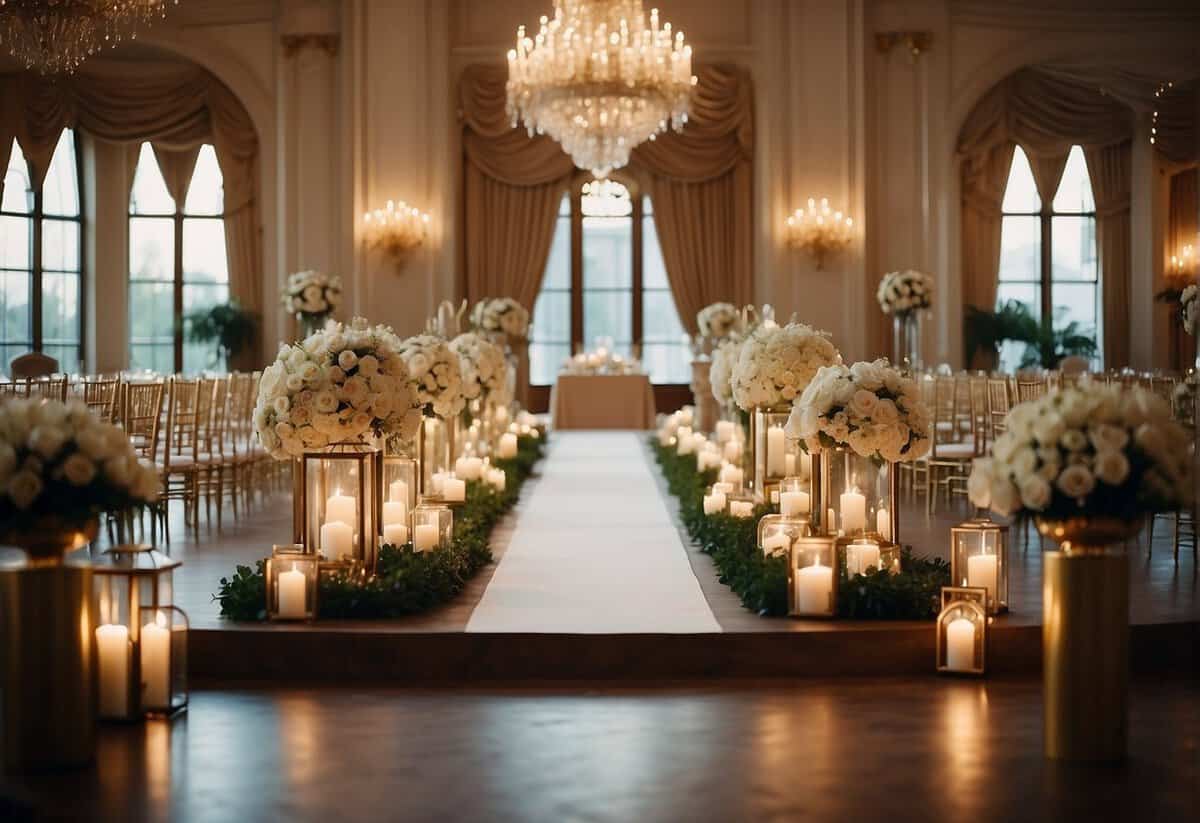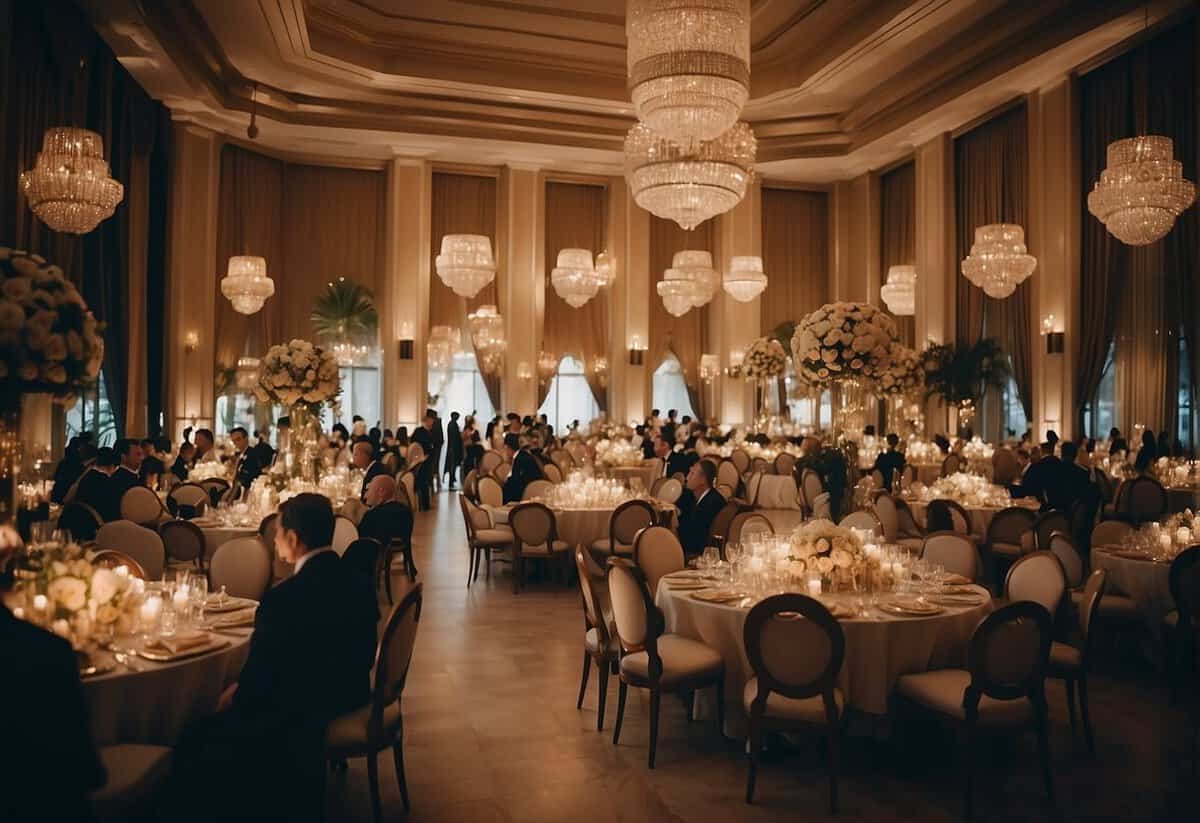Are Rich People More Likely to Marry? Understanding Wealth and Matrimony Trends
When exploring the social dynamics of matrimony, one question that persistently surfaces is whether individuals with higher incomes have a propensity to marry within their economic bracket. Trends indicate a significant pattern where socioeconomic status plays a decisive role in whom people marry. Far from being coincidental, this has deep roots in shared values, lifestyle expectations, professional circles, and the pursuit of financial stability that often drive wealthy individuals to pair with partners of similar financial standing.

The landscape of marriage has evolved considerably, with various classes showing different rates of marriage and selecting partners based on a conglomeration of factors that include more than just affection. For high-income earners, the emphasis on marrying someone within their socioeconomic stratum can result from mutual understanding, common goals, or the simplicity found in shared socio-economic backgrounds. This trend is seen to reinforce economic divides and raises questions about the complexity of marital patterns in contemporary society.
Key Takeaways
- Wealthy individuals often marry within their own socioeconomic bracket.
- Socioeconomic status influences marriage rates and partner selection.
- Financial and lifestyle compatibility plays a significant role in high-income marriages.
Socioeconomic Factors and Marriage Trends

In examining the landscape of matrimony, you’ll find that your wallet and diploma can play non-negligible roles. Let’s unpack how income and education pave the roads toward marriage.
Income and Economic Status
Your income level is a significant factor in marriage trends. Higher income often correlates with higher marriage rates. This connection is not coincidental; it’s steeped in the realities of economic security and aspirations. Studies, such as those from the Pew Research Center, illustrate that individuals with more substantial earnings often enjoy higher rates of marital stability. It’s not just about being able to afford a wedding; it’s about the capacity to build and support a family.
On the flip side, income inequality can be a barrier to marriage, particularly for those at the lower end of the income distribution. Economists point out that as middle-class jobs have become harder to come by, the labor market shifts have left many with financial uncertainties that delay or deter marriage.
Education and Employment
Your level of education doesn’t just affect your job prospects—it can also influence your likelihood of getting married. Those with college degrees are statistically more inclined to tie the knot. The reason? Education can lead to more stable and higher-paying employment, which often provides a more conducive environment for starting and maintaining a family.
Furthermore, there’s a growing trend of educational homogamy: marrying someone within your own socioeconomic bracket. In practice, this means professionals often marry other professionals, which reinforces social class stratification through marriage and family formation.
Marriage Rates Among Different Social Classes

In exploring how social classes impact who gets married, you’ll find that financial stability, education, and employment play significant roles in the likelihood of individuals entering and sustaining marriage.
Wealth and Marriage Among the Upper Class
For those in the upper-class, marriage rates are generally higher. You are more likely to enter a stable marital union if you’re wealthy; this is partly due to financial security providing a conducive environment for family life. The upper-class often engages in assortative mating, where you are more likely to marry someone of similar socio-economic status, which can amplify wealth and educational similarities within a couple. This group tends to marry later, allowing the time to achieve higher levels of education and career establishment.
Middle Class Marriage Dynamics
If you belong to the middle class, then your approach to marriage might be influenced by both traditional expectations and modern economic considerations. Middle-class couples are likely to be dual earners with both partners contributing to the family income, often necessitating a balance between work and family life. The gini coefficient, which measures income inequality, can affect marriage rates in your class, as higher inequality may lead to economic strain that undermines marriage stability.
Challenges of Marriage in Lower Socioeconomic Strata
Marriage in lower socioeconomic strata faces distinct challenges. Economic hardship, high unemployment rates, and fewer opportunities for less educated workers can place stress on intimate relationships. This sometimes results in higher rates of single-parent households and lower marriage rates. If you live in an area affected by the decline in manufacturing jobs, you might see this impact first-hand, as economic instability can discourage marriage or lead to an increase in trial marriages.
Remember, your socioeconomic status doesn’t define your capacity for a happy and fulfilling relationship. However, it’s clear it does have a substantial influence on marriage patterns across different social strata.
The Role of Gender in Marital Choices

When assessing marital choices, your gender significantly influences various factors such as income, employment status, educational level, and perceptions of stability and independence. It’s evident that traditional gender roles and economic dynamics profoundly shape the decision to marry.
Marriage Trends Among Men
Men often encounter societal expectations to secure a stable income and achieve a certain level of education before marriage is considered. This has been linked to the notion that men are expected to be the primary breadwinners. Studies show that married men often have peak earnings, suggesting that marriage might have a positive impact on a man’s financial status. For example, married white men saw their earnings peak significantly compared to other groups.
Women’s Choices in Marriage
For women, their choices in marriage are multifaceted, balancing employment, potential motherhood, and other roles. Educational attainment and career considerations impact when and whom they marry. Women at higher socioeconomic levels tend to delay marriage to prioritize education and career, leading to a higher degree of marital stability and later childbirth. Conversely, when household specialization is emphasized, it often leads to one partner, typically the woman, taking on most household duties, aiming for more traditional marital roles. This choice can expand gender gaps and foster inequality within households.
Marriage trends reflect broader societal dynamics and the changing roles and expectations of men and women. Your choices regarding marriage are deeply personal yet are influenced by these wider economic and cultural factors.
Frequently Asked Questions

In this section, you’ll find answers to common questions regarding the marital patterns of wealthy individuals. We’ll explore whether income influences marriage decisions and how it correlates with marriage and divorce rates.
Do high-income individuals tend to marry within their financial bracket?
Yes, high-income Americans are increasingly marrying other high earners, intensifying the trend of economic assortative mating.
Is there a correlation between wealth and higher marriage rates?
Professionals with higher income and education levels typically have higher rates of marriage.
Are individuals with high net worth more or less likely to experience divorce?
While there’s no definitive answer to whether wealth directly impacts divorce rates, couples with higher education and income, who often have a wealthier net worth, usually display lower divorce rates.
What percentage of wealthy individuals are married compared to those not wealthy?
Detailed statistics are not provided here, but wealthier individuals typically have higher marriage rates than their less affluent counterparts.
Is there a trend of wealthy people marrying others with similar economic status?
Research suggests that the wealthy are indeed more likely to marry others within their economic class, exacerbating income inequality.
How does the marriage rate among the affluent compare to that of the general population?
Generally, affluent individuals marry at higher rates than the overall population, and this gap seems to have been growing over the past decades.

